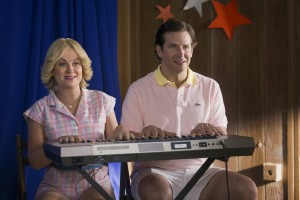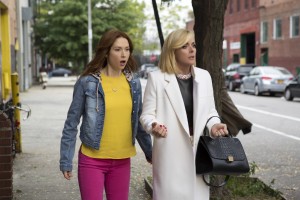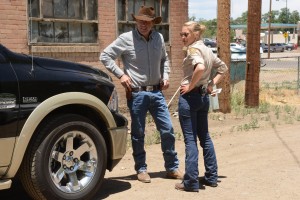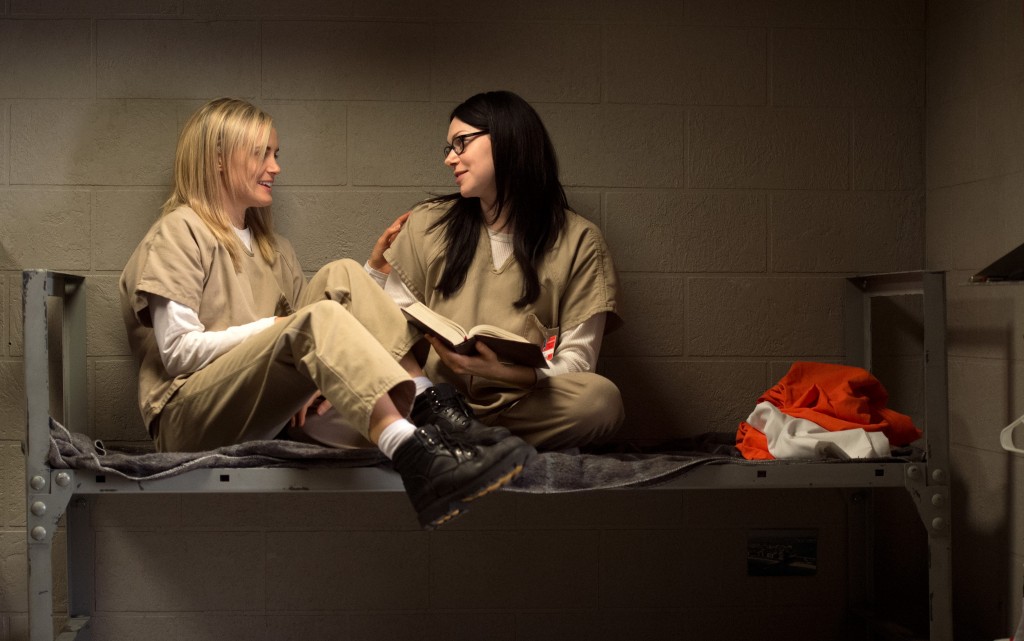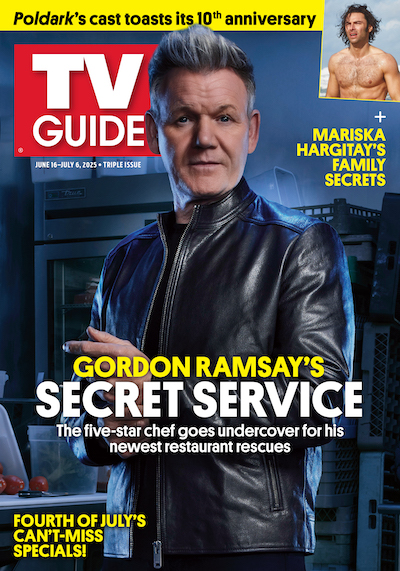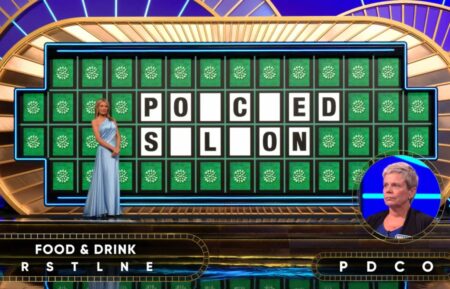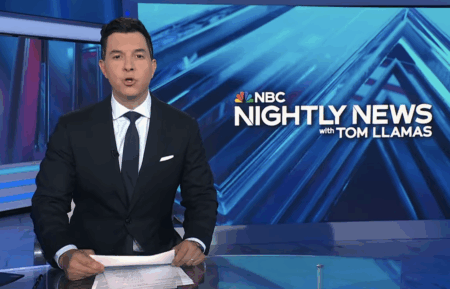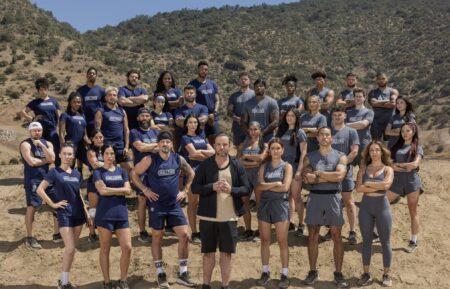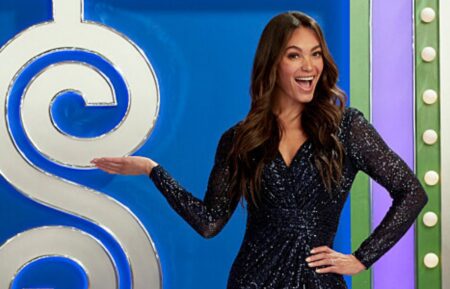The Future of Netflix: Ted Sarandos on Tweens, His Adam Sandler Gamble and Capitalizing on Cable’s Big Weakness
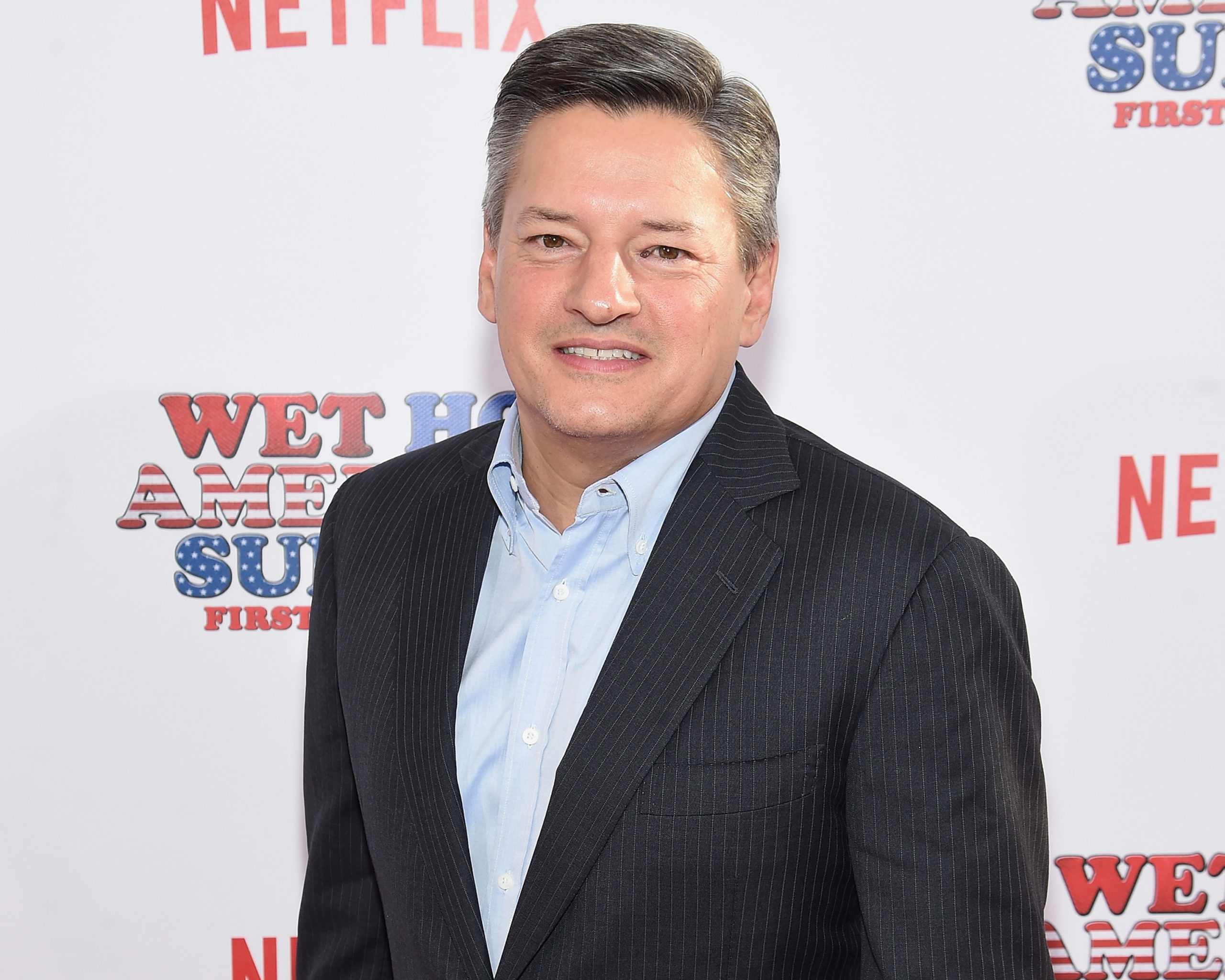
Netflix chief content officer Ted Sarandos knows he’s contributing to the glut of original scripted programming now available to consumers–and he’s fine with it. Last month Netflix brought a slew of new and returning series to the Television Critics Association press tour, including the Pablo Escobar drug trade drama Narcos, the Aziz Ansari comedy Master of None, in addition to Chelsea Handler (promoting her new talk show and documentary series).
Afterward, Sarandos sat down with TV Insider to discuss Netflix’s big expansion plans, why it keeps reviving so many shows and why he’s bullish on Adam Sandler. In the wide-ranging interview, Sarandos explained why Fuller House is part of his strategy to reach underserved tweens, how he sees opportunity in film as the studios focus on blockbusters, why marketing isn’t as important to him, and how cable’s customer service woes benefit streaming services. An edited version of that conversation follows.
RELATED: Netflix Boss on Fuller House, Arrested Development, Marvel and How to Save Your Favorite Show
You’re premiering 475 hours of original programming in the coming year, including new shows like Fuller House. That’s tremendous growth in three years. What’s the limit?
That’s the $64 million question. The idea that is as long as the subscriber base is growing and the number of hours that people are spending on Netflix is growing, we want to keep pushing that until we get to the point of diminished returns. We haven’t seen yet. The benefits of global scale is finding global storytellers. Narcos is geared toward an American audience, a Spanish-speaking audience, a Latin American audience.
International is a key part of your strategy.
What’s encouraging is Orange is the New Black, House of Cards and Unbreakable Kimmy Schmidt are performing well proportionately outside of the U.S.
Even the comedies? Those are usually considered a tougher sell overseas because of cultural differences.
That’s something 30 Rock never had. Kimmy is traveling great.
Your Adam Sandler movie deal, of course, was fueled by international.
I think that the distribution business determines what people watch a lot more than local taste. If you narrowed it just to piracy, you’d see what gets watched is exactly what you would expect. Those are the people who take choice into their own hands and don’t have the opportunity to see these shows and movies. Because in a lot of places in the world Adam’s last couple of movies didn’t even open. Blended did more business outside of the U.S., was a massive hit in Latin America. A third of our subscribers are outside of the U.S. So we had to explore this notion of whether American comedy travels. If done right it does. Kimmy is one that does, certainly Grace and Frankie does, and the Adam Sandler movies we expect to.
On the film side, studios are focusing on big franchises, and in some cases are catering to major territories like China.
That creates great opportunity. If Hollywood is making movies for China and China is making movies for China, no one’s going to be making movies for the U.S. The opportunity for character-driven dramas and interesting comedies is going to get smaller and smaller and be replaced by tentpoles that are super hit or miss.
In picking up the older-skewing Longmire from A&E, you have pointed out that Netflix isn’t a slave to demos.
I don’t know what older guys who watch Longmire buy, but I do know they have credit cards. And they can subscribe to Netflix and watch Longmire.
Do you feel like you’re hitting every viewer demographic? Or are there still some viewers you feel you’re not catering to yet?
We’re not looking at it and saying, “Let’s go find something for this demo.” But our ears perk up when something meets a demo that we’re trying to serve. We’re filling those gaps by licensing off-network programs, which we’ll continue to do. I do think we might be more interested if it’s an underserved demo.
We were talking about Degrassi [acquired by Netflix after Teen Nick canceled it]. That really is an underserved age demographic. Most things on TV are edgy and dark or really, really young. Trying to find something that serves that [tween] age demographic, deals with contemporary issues with a little bit of edge, but is safe to watch. That’s why Degrassi was exciting. Fuller House is another. There’s no co-viewing on TV anymore. I think it would be great if we could rekindle co-viewing and Fuller House could do that.
But people are watching your shows on devices. Do people co-stream?
Maybe co-viewing doesn’t have to be at the same time. You connect on the show that you both watch and both like and talked about.
Every time you rescue another canceled show, you stir up hope among fans that all shows can be saved.
Most of them are situations like Hannibal, and of course their deal with Amazon prevented that from even being a discussion to be had. We didn’t have the older episodes, we didn’t have the audience for the show. It might have been the right outcome for the show, as it turns out. They’re not all savable or should be. Has the creative of the show stayed intact? That’s why Longmire was unique. The audience was stable. It wasn’t shrinking. The Killing was another.
I like the flavor of a Wet Hot American Summer or Arrested Development, where you have the ability to revisit the players and revisit storytelling but put a different twist on it. Longmire is just a continuation of the show as it was. But they had more creative freedom, less censorship, so they can curse a little. It can be a bit darker, a little edgier.
As Netflix matures will you do less of that, or is there always room for these revivals?
There’s a great thing about thinking about what’s not on TV anymore than you used to love. I think those revivals and reunion episodes were always a real staple in television when I was growing up. How many Brady Bunch revivals and Gilligan’s Island reunions were there? It was always a cool novelty. I love the notion of it.
You mentioned the acquisitions, the library content. It seems like you’re continuing to move away from that in favor of the originals.
As an absolute dollar amount we’re spending more, but as a percentage we’re spending more on originals. But we’re growing so much.
You still have quite a financial commitment toward the TV libraries you’ve licensed.
Remember, when they talk about those really long-term commitments, that’s relatively good news because the stuff that works, we want to lock up for a long time. So that creates a long-term commitment against it, but we want that content to keep drumming up and entertaining subscribers. For the most part what they characterize as 10-year commitments are closer to two- and three-year time frames.
Won’t that still be an issue for you down the road?
No. We’re a subscription business, a very stable revenue business. Subscribers grow and the ability to pay for those commitments continues to grow. You’re investing against future viewing. So of course we’re going to have forecasted revenue against all of that content.
The commitments are also in many cases tied to programming that is contemplated, it’s not even made yet or may never deliver. Studio output deals drive a lot of that. Our next output deal coming on in 2016, Disney, is about as sure a bet as you can get. The worst thing you could have is not have long-term access to content.
It does seem like you’re being much more strategic now in your acquisitions.
Disney was unique. We probably would not be interested in any other studio output deal in the U.S. in the near future.
Back to originals, is the goal to have a new premiere every weekend?
We’re getting pretty close.
You have to market all of that.
A lot of the heavy lifting of getting audiences to the show is done with the user interface. We can launch a lot of these shows without spending any marketing. We can use the merchandising to draw the audience in. Marketing spends we do mostly to attract subscribers to join Netflix. The actual viewing of shows, the user interface is driving almost all of that. So marketing is good to plant a seed in the culture, awards season spending, so we see it a lot different in New York and LA.
Do you want to move toward owning more of your own programming in-house?
Yes. What I’m not trying to do is, I’m not trying to set up a mandate that we’ll try to own X percentage of our programming. Which networks do. I don’t want us picking shows based on business models. I want us picking shows based on the quality of the programming. In some cases, an outside studio owns the intellectual property, and you can’t make the show unless they own it. I want to continue to say “yes” to those shows when we can. But Wet Hot [American Summer: First Day of Camp] is an example where we are both the studio and the network and we’ll do more of it. But I don’t want to do more of it at the expense of quality programming. You can chart some of the demise of quality of television to that rise in network ownership.
Over-the-top services like HBO Now and Showtime’s new offering are now reality. What’s your take?
It’s exactly what we said was going to happen. All the great networks are going to become great apps. [Disney CEO] Bob Iger said the other day that ESPN will go direct to consumer and be an app. HBO Now, Showtime, it’s a natural progression. If consumers are telling you what they want, you better listen. They’re listening now.
Is there a ceiling to what consumers will be willing to pay?
The average cable bill is over $80 a month. [Streaming services] are relatively low-cost services relative to that. If people wanted to build up just what they wanted, and have all the on-demand access, you could have a lot.
The irony of unbundling is people may end up spending just as much on many different apps.
If they do and they’re more happy, that’s a good thing. Right now when it comes to pay television, people have hit a ceiling in terms of what they’re willing to pay and continue to be unhappy with it. If they love the product, if Time Warner Cable and the other guys had great customer service and people loved those companies, I don’t think there would be any issue.
The good thing is there’s going to be a ton of consumer choice, it’s going to be affordable and it’s going to be well-distributed. Think about just a few years ago. If you wanted to watch Game of Thrones, and you didn’t have digital cable, you had to add digital cable, and then buy HBO. Where if you want to watch House of Cards, if you have $8 and an Internet connection and a screen, you can watch it.
Chelsea Handler said there are still technical issues you have to figure out before her show launches, including uploading the show within 48 hours of its taping.
The show itself will be a little more topical than the things we’ve done in the past. We want to be able to produce it and get it up for the world right away. There’s encoding and transcoding, 4K, 12 languages, 700 different SKUs. There’s a lot of that that goes into it.
What about live streaming?
Live streaming is almost opposite of the consumer proposition of on demand. People will watch it whenever they want.
The TV Academy denied your petition to keep Orange is the New Black in the Emmy comedy race, but it still did quite well with drama nominations.
What they were hearing was people saying, “This feels weird. That show is clearly not a comedy and you’re trying to game the system.” It is a serious debate whether that show is a comedy or a drama. I think it’s really up to the creator. They should leave it to the creator’s intent. But this is where they landed, with 30-minute shows classified as comedies and 60-minute as drama. You can petition and protest. The way it turned out, the show is really beyond category. It’s a drama that’s sometimes really funny, and a comedy that’s sometimes really serious. Where does it fit? It got nominated in both categories.
The more that we’re able to specialize, the more those things will be challenged. BoJack Horseman is a good example. I think the writing on BoJack is comparable to any thing on television, but it’s unusual for an animated series to get nominated as a comedy. The goal should be when the average TV fan is watching the Emmys, it should make sense to them. I don’t know that anyone draws that line anymore.
From TV Guide Magazine
Behind the Scenes With Gordon Ramsay: 20 Years of Cooking Up TV Hits
The celebrity chef reflects on redefining culinary television and his fiery journey Hell’s Kitchen to Secret Service. Read the story now on TV Insider.

